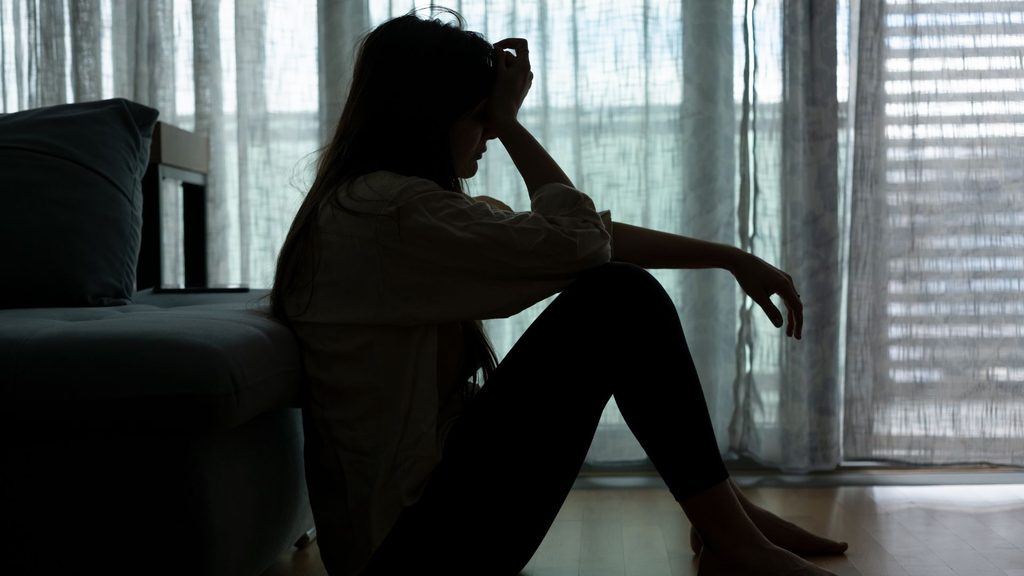Use of anti-depressants and anti-psychotic medication has skyrocketed among young people in Belgium over the last five years, exacerbating fears that the country's youth are facing an unprecedented mental health crisis.
According to a recent analysis by De Morgen, the proportion of 19 to 24-year-olds who regularly take anti-depressants increased by 40% from 2018 to 2022, with the figure rising to 60% for 12 to 18-year-olds.
The data strongly suggests that much of the increase is attributable to the social isolation and anxiety triggered by Covid-19 lockdowns. Among both the 12-18 and 19-24 age groups, anti-depressant and anti-psychotic drug usage as well as visits to psychiatrists all increased from 2020 to 2022, despite the fact that these numbers were either stable or declining prior to 2020.
"The mental impact of the lockdowns was perhaps greatest among young people, who are still developing their identity," said Ruud Saerens of the Independent Health Insurance Funds (Onafhankelijke Ziekenfondsen), which collaborated with De Morgen on the study. "For young people with a risk profile, that period may have precipitated the development of a mental condition."
Analysts also expressed surprise at the sheer scale of the increase. "I am shocked," said Dirk Van West, an expert on mental health at the University of Antwerp. "Especially for 18-year-olds, anti-depressants are only the most appropriate treatment in a limited number of well-defined cases."
'The suffering is intense'
The De Morgen study closely mirrors the Federal Government's own analysis, which explicitly links young people's worsening mental health to lockdowns.
"Following the Covid-19 crisis, mental health deteriorated," notes the government-run website For A Healthy Belgium (FAHB). "The Covid-19 pandemic has raised immense concerns over the well-being of young people."
FAHB adds that, in 2018, around one in ten young Belgians suffered from anxiety or depression. By March 2022, this number had risen to one in four.
Perhaps even more worryingly, phone calls to Belgium's Suicide Prevention Centre (SPC) have grown enormously over the last few years, rising from 12,000 calls in 2019 to 23,000 in 2020.
"Sometimes [the callers] are children," SPC Director Dominique Nothomb told RTBF. "We are seeing more young people in consultation than before. We also have more very young people coming to us from the anonymous helpline since Covid-19. This is a serious situation. The suffering is intense. What really concerns us is the state of mental health of young people at the moment."
Covid-19 lockdowns have also severely affected the mental health of youth in other countries. An OECD report published in May 2021 found that in Belgium, France and the United States the proportion of young people suffering from anxiety or depression had doubled since the onset of the Covid-19 pandemic in early 2020.
'They don't really address the problem'
However, experts interviewed by De Morgen were careful to stress that Covid-19 lockdowns are not the sole cause of Belgian youths' deteriorating mental health.
According to KU Leuven psychiatrist Stephan Claes, the current crisis is also partly a consequence of young people's increasing social media use.
Related News
- Young people in Belgium continue to use screens excessively, expert warns
- Teenage suicide crisis in Belgium, experts raise the alarm
"Constantly comparing yourself to others via social media [...] can lead to stress, performance anxiety and exhaustion, especially in perfectionists," he explained.
Claes also emphasised that, at best, anti-depressants only address the physiological symptoms of depression and anxiety rather than the root societal causes.
"They can sometimes help you feel better, but they don't really address the problem. Anti-depressants are still too often a poor answer to a complex problem, which is not medical but social."

